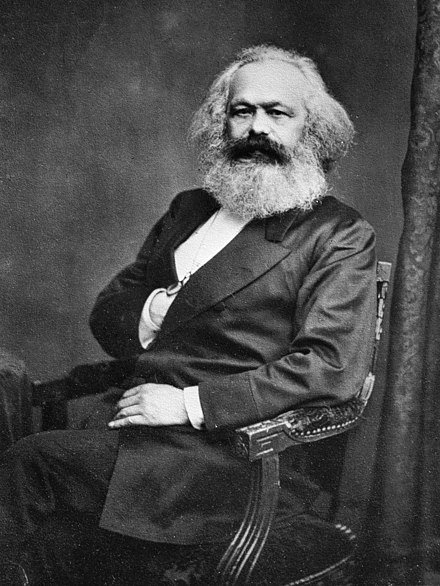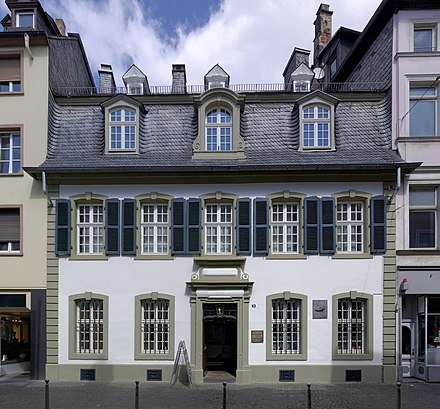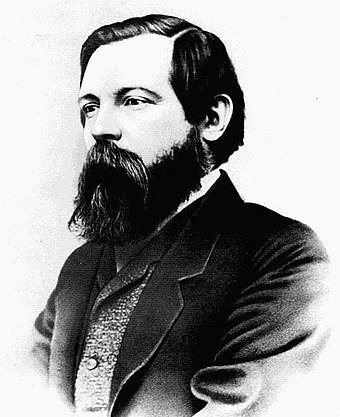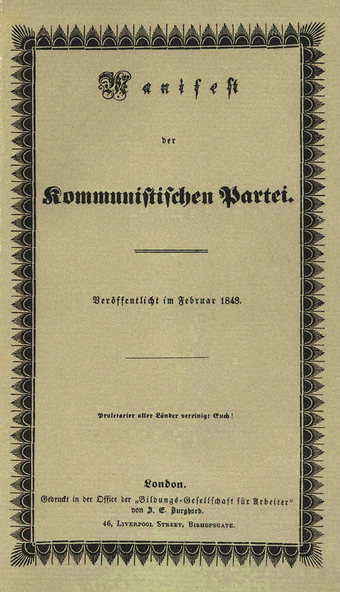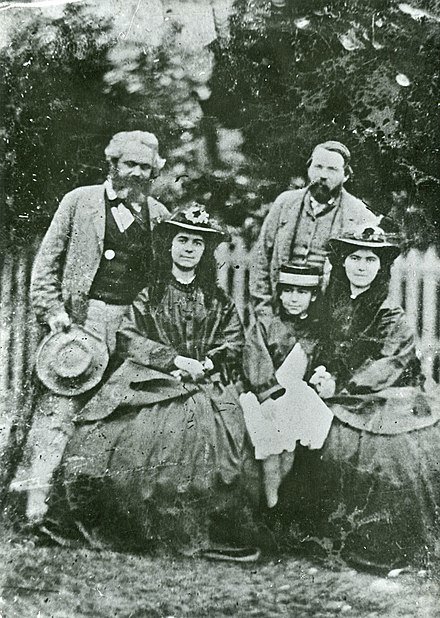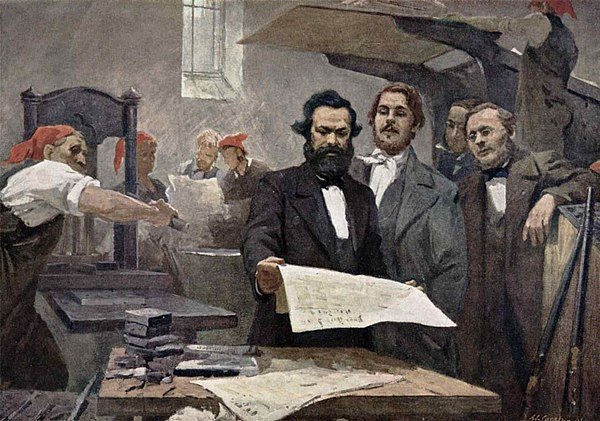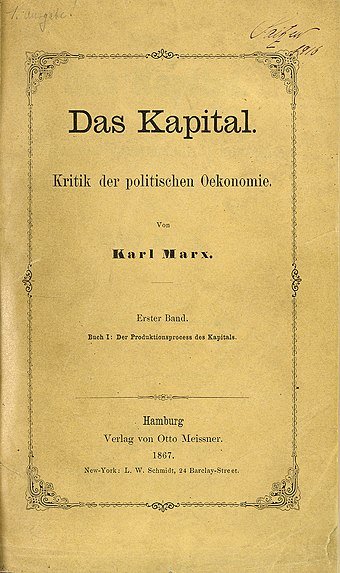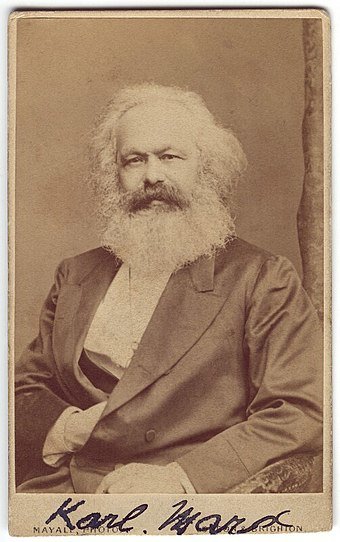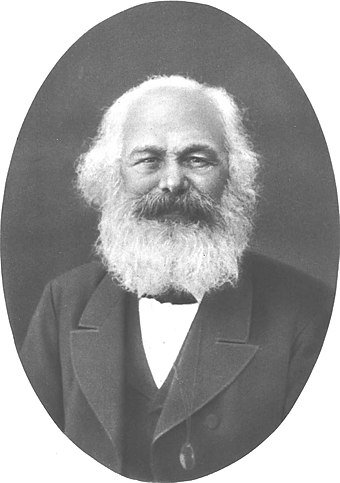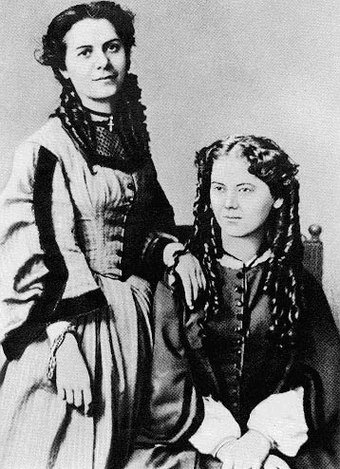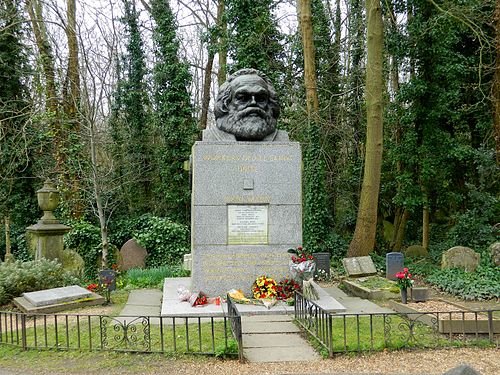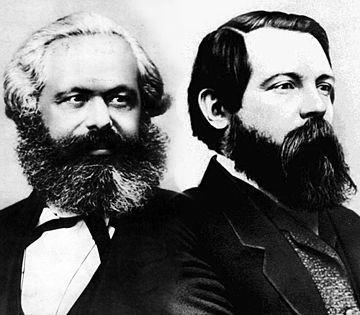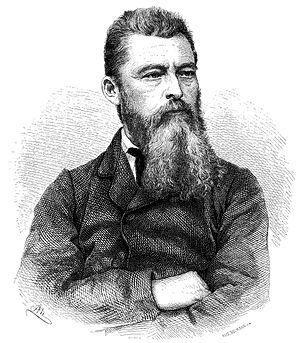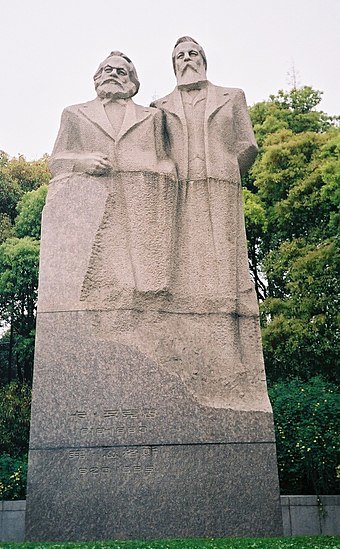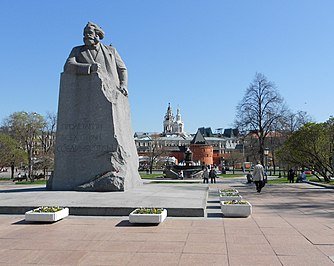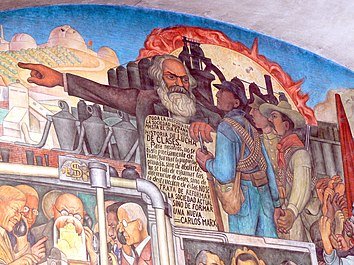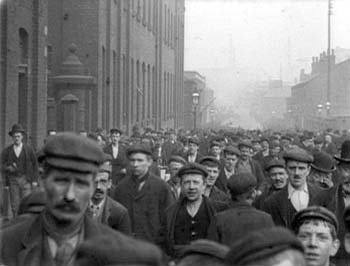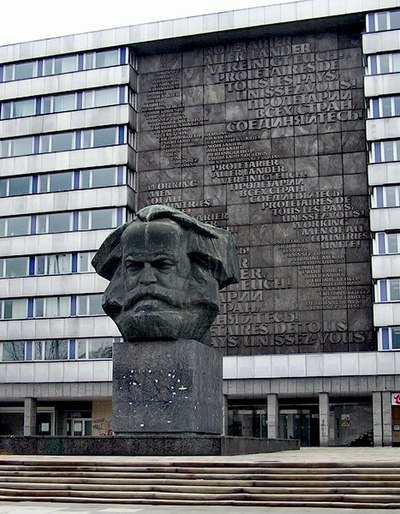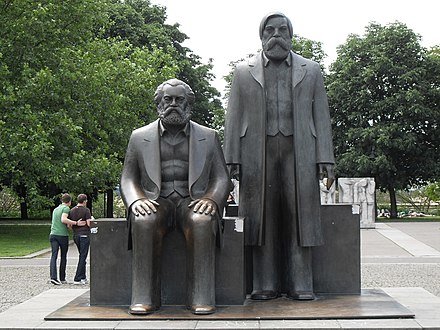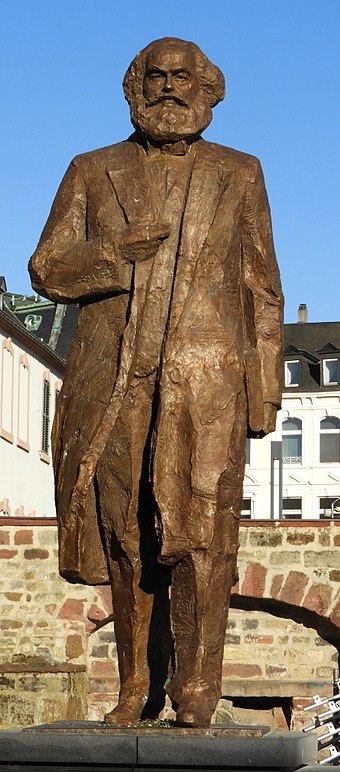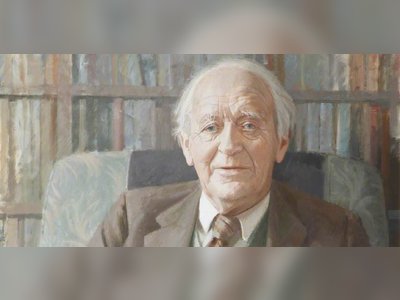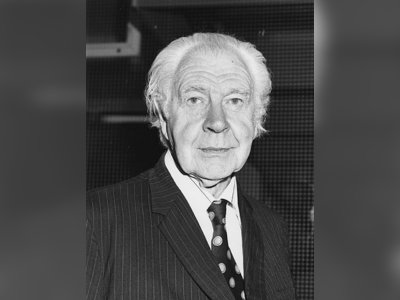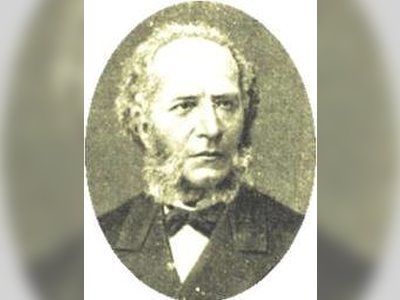British Heritage
Remember, Cherish, Learn.
beta
Karl Marx - Critic of the System, 1800s
Critic of the System and His Contribution to British Heritage.
Karl Heinrich Marx, a German-born philosopher, economist, historian, sociologist, political theorist, journalist, and socialist revolutionary, left a profound mark on intellectual, economic, and political history. Despite facing statelessness due to his political writings, Marx found refuge in London with his family for several decades, where he continued to develop his thoughts and collaborate with Friedrich Engels. This period in London became a critical phase in the formulation of his ideas and the creation of his most influential works, including "The Communist Manifesto" and "Das Kapital."
Karl Marx was born on May 5, 1818, in Trier, Germany, into a family of Jewish heritage, which had previously converted to Christianity. His father, Heinrich Marx, a lawyer and a man of the Enlightenment, provided him with a secular education. Marx attended the University of Bonn and later the University of Berlin, where he studied law and philosophy. His interest in philosophy deepened, and he became captivated by the ideas of Georg Wilhelm Friedrich Hegel, whose dialectical method and historical philosophy significantly influenced Marx's later thinking.
Marx's critical theories about society, economics, and politics, collectively known as Marxism, posited that human societies evolve through class conflict. In the capitalist mode of production, this conflict manifests as a struggle between the bourgeoisie, who control the means of production, and the proletariat, who sell their labor-power in exchange for wages. Marx employed historical materialism to predict that capitalism's internal tensions and crises would lead to its self-destruction, paving the way for a socialist mode of production.
Marx believed that capitalism's inherent instability would eventually lead to the working class developing class consciousness, leading to their political empowerment and the establishment of a classless, communist society. He actively advocated for organized proletarian revolutionary action to overthrow capitalism and achieve socio-economic emancipation.
Karl Marx has been described as one of the most influential figures in human history. His ideas laid the foundation for modern social science, shaping economics, sociology, and political theory. His work on labor and capital provided the basis for contemporary theories about the relationship between labor and capital.
Marx's impact extended far beyond academia, influencing labor unions, intellectuals, artists, and political parties worldwide. His name has been used both as a compliment and as an insult, and the term "Marxism" emerged as a school of social theory. Although his ideas have been adapted and modified by various thinkers and movements, Marx's legacy endures as a driving force behind social and political change.
Exiled from Germany and facing political persecution, Marx found refuge in London with his wife, Jenny von Westphalen, and their family. During his time in the city, he collaborated with Friedrich Engels, another influential thinker, and together they developed and published significant works.
Researching in the British Museum Reading Room, Marx and Engels collaborated on "The Communist Manifesto," published in 1848. This pamphlet served as a revolutionary call to action, outlining their vision of the class struggle and the need for a proletarian revolution. The manifesto highlighted the historical inevitability of the working class overcoming capitalism and establishing a communist society.
Another seminal work produced during Marx's London exile was "Das Kapital," a three-volume economic treatise that Marx worked on from 1867 until his death in 1883. In this work, Marx analyzed the capitalist mode of production, delving into issues of exploitation, surplus value, and the inherent contradictions of capitalism. Although the later volumes were edited and completed by Engels after Marx's death, "Das Kapital" remains a foundational text in Marxist economic theory.
Marx played a central role in the Communist League, an organization that sought to unite the working class and promote the principles of scientific socialism. The Communist League published "The Communist Manifesto," outlining its revolutionary goals and emphasizing the historical significance of class struggle. While the initial plan for immediate uprising faced opposition, Marx's more strategic approach to uniting with progressive elements of the bourgeoisie gained traction.
The outbreak of the Revolutions of 1848 in Europe offered an opportunity for revolutionary change, and Marx was actively involved in encouraging working-class activism and supporting the revolutionary movements. However, the revolutions were ultimately suppressed, leading Marx to focus on strengthening the socialist movement and refining his political philosophy.
In "The German Ideology," co-authored by Marx and Engels, the groundwork for historical materialism was laid. This concept became central to Marxist thought, asserting that material conditions and economic factors drive historical development and social change, rather than abstract ideas. The work criticized both utopian socialism and idealism, asserting that practical action and revolutionary change were essential to achieving socialist goals.
Karl Marx's legacy is one of intellectual brilliance and profound impact. His critical theories and economic analysis laid the foundation for modern social science and continue to shape discussions on labor, capital, and class struggle. Despite facing exile and political persecution, Marx found a haven in London, where he collaborated with Friedrich Engels and produced groundbreaking works that shaped the course of intellectual, economic, and political history. While his ideas have been adapted and interpreted in various ways, Marx's vision of a classless, communist society and the necessity of organized proletarian revolutionary action continue to inspire and challenge societies worldwide. His name, once a symbol of revolutionary thought, remains embedded in the annals of history as one of the principal architects of modern social theory.
Early Life and Education
Karl Marx was born on May 5, 1818, in Trier, Germany, into a family of Jewish heritage, which had previously converted to Christianity. His father, Heinrich Marx, a lawyer and a man of the Enlightenment, provided him with a secular education. Marx attended the University of Bonn and later the University of Berlin, where he studied law and philosophy. His interest in philosophy deepened, and he became captivated by the ideas of Georg Wilhelm Friedrich Hegel, whose dialectical method and historical philosophy significantly influenced Marx's later thinking.
The Development of Marxist Thought
Marx's critical theories about society, economics, and politics, collectively known as Marxism, posited that human societies evolve through class conflict. In the capitalist mode of production, this conflict manifests as a struggle between the bourgeoisie, who control the means of production, and the proletariat, who sell their labor-power in exchange for wages. Marx employed historical materialism to predict that capitalism's internal tensions and crises would lead to its self-destruction, paving the way for a socialist mode of production.
Marx believed that capitalism's inherent instability would eventually lead to the working class developing class consciousness, leading to their political empowerment and the establishment of a classless, communist society. He actively advocated for organized proletarian revolutionary action to overthrow capitalism and achieve socio-economic emancipation.
The Impact of Marx's Work
Karl Marx has been described as one of the most influential figures in human history. His ideas laid the foundation for modern social science, shaping economics, sociology, and political theory. His work on labor and capital provided the basis for contemporary theories about the relationship between labor and capital.
Marx's impact extended far beyond academia, influencing labor unions, intellectuals, artists, and political parties worldwide. His name has been used both as a compliment and as an insult, and the term "Marxism" emerged as a school of social theory. Although his ideas have been adapted and modified by various thinkers and movements, Marx's legacy endures as a driving force behind social and political change.
Exile in London and Collaborative Efforts
Exiled from Germany and facing political persecution, Marx found refuge in London with his wife, Jenny von Westphalen, and their family. During his time in the city, he collaborated with Friedrich Engels, another influential thinker, and together they developed and published significant works.
Researching in the British Museum Reading Room, Marx and Engels collaborated on "The Communist Manifesto," published in 1848. This pamphlet served as a revolutionary call to action, outlining their vision of the class struggle and the need for a proletarian revolution. The manifesto highlighted the historical inevitability of the working class overcoming capitalism and establishing a communist society.
Another seminal work produced during Marx's London exile was "Das Kapital," a three-volume economic treatise that Marx worked on from 1867 until his death in 1883. In this work, Marx analyzed the capitalist mode of production, delving into issues of exploitation, surplus value, and the inherent contradictions of capitalism. Although the later volumes were edited and completed by Engels after Marx's death, "Das Kapital" remains a foundational text in Marxist economic theory.
The Communist League and the Impact of the 1848 Revolutions
Marx played a central role in the Communist League, an organization that sought to unite the working class and promote the principles of scientific socialism. The Communist League published "The Communist Manifesto," outlining its revolutionary goals and emphasizing the historical significance of class struggle. While the initial plan for immediate uprising faced opposition, Marx's more strategic approach to uniting with progressive elements of the bourgeoisie gained traction.
The outbreak of the Revolutions of 1848 in Europe offered an opportunity for revolutionary change, and Marx was actively involved in encouraging working-class activism and supporting the revolutionary movements. However, the revolutions were ultimately suppressed, leading Marx to focus on strengthening the socialist movement and refining his political philosophy.
The German Ideology and Historical Materialism
In "The German Ideology," co-authored by Marx and Engels, the groundwork for historical materialism was laid. This concept became central to Marxist thought, asserting that material conditions and economic factors drive historical development and social change, rather than abstract ideas. The work criticized both utopian socialism and idealism, asserting that practical action and revolutionary change were essential to achieving socialist goals.
Conclusion
Karl Marx's legacy is one of intellectual brilliance and profound impact. His critical theories and economic analysis laid the foundation for modern social science and continue to shape discussions on labor, capital, and class struggle. Despite facing exile and political persecution, Marx found a haven in London, where he collaborated with Friedrich Engels and produced groundbreaking works that shaped the course of intellectual, economic, and political history. While his ideas have been adapted and interpreted in various ways, Marx's vision of a classless, communist society and the necessity of organized proletarian revolutionary action continue to inspire and challenge societies worldwide. His name, once a symbol of revolutionary thought, remains embedded in the annals of history as one of the principal architects of modern social theory.
- Karl Marxen.wikipedia.org

